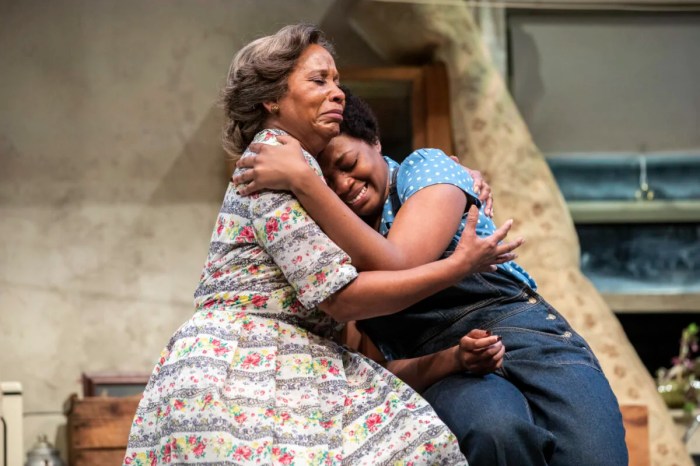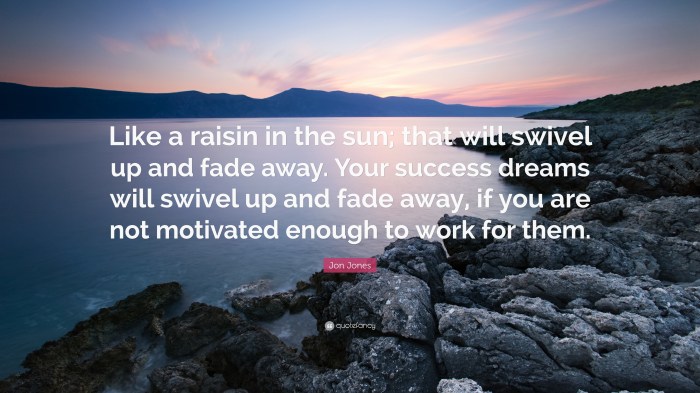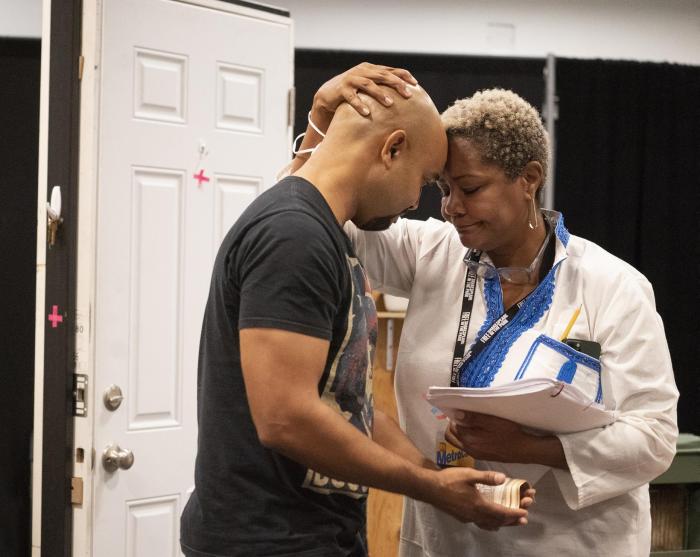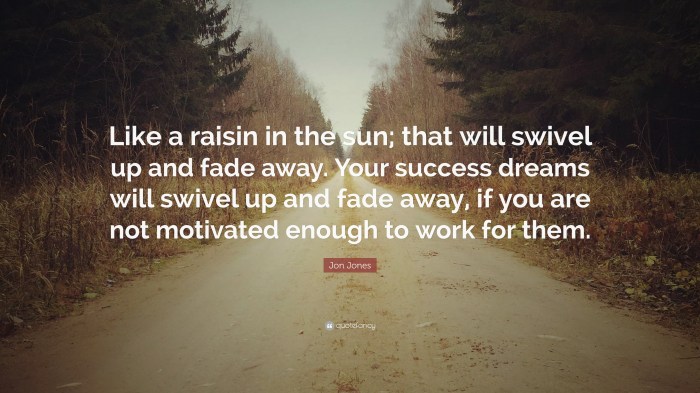Sexism in a raisin in the sun – In Lorraine Hansberry’s groundbreaking play, A Raisin in the Sun, sexism permeates the fabric of the Younger family’s struggles, shaping their relationships, dreams, and aspirations. This essay delves into the play’s nuanced portrayal of gender inequality, examining how traditional roles, female empowerment, and patriarchal values intersect with race and class to create a complex and thought-provoking exploration of sexism.
Through a close analysis of the play’s characters, dialogue, and symbolism, we will uncover the ways in which sexism manifests itself in the Younger family’s lives and the broader societal context of the 1950s.
Gender Roles: Sexism In A Raisin In The Sun

In A Raisin in the Sun, traditional gender roles are deeply ingrained in the Younger family’s dynamics. Women are expected to fulfill domestic duties, such as cooking, cleaning, and caring for children. Men, on the other hand, are seen as the breadwinners and decision-makers.
These roles can both limit and empower the characters. For example, Ruth’s role as a housewife confines her to the home and limits her financial independence. However, it also gives her a sense of purpose and fulfillment in providing for her family.
Gender Bias in Dialogue
- When Walter tells Ruth to “sit down and be quiet,” he is asserting his authority as the man of the house and silencing her voice.
- Beneatha’s desire to become a doctor challenges the traditional gender roles of the time, and she faces resistance from both her family and society.
Female Empowerment

In A Raisin in the Sun, female characters play pivotal roles in challenging societal norms and advocating for female empowerment. Their actions and words contribute significantly to the play’s feminist message.
One key way in which female characters challenge societal norms is through their assertion of independence. Ruth Younger, the matriarch of the family, is a strong and determined woman who refuses to be confined by traditional gender roles. She works outside the home to support her family and is not afraid to speak her mind.
Her daughter, Beneatha Younger, is also a strong and independent woman. She is pursuing a medical degree and is not interested in conforming to traditional expectations of women.
Another way in which female characters challenge societal norms is through their defiance of expectations. Mama Younger is a devout Christian woman who believes in the importance of family. However, she is also willing to defy her religious beliefs in order to support her daughter’s dreams.
Beneatha Younger is also willing to defy expectations by pursuing a career in medicine, a field that is typically dominated by men.
The female characters in A Raisin in the Sun are complex and well-developed. They challenge societal norms and defy expectations, contributing to the play’s feminist message. Their actions and words inspire audiences to think critically about gender roles and the importance of female empowerment.
Sexism in “A Raisin in the Sun” is a complex and pervasive issue. It manifests in various forms, such as the devaluation of women’s opinions and the limitation of their opportunities. Similarly to how a dart is thrown horizontally , sexism can have a profound impact on individuals, leaving lasting wounds.
In “A Raisin in the Sun,” the consequences of sexism are evident in the struggles faced by the Younger family.
Ruth Younger’s Assertion of Independence
- Ruth Younger is a strong and determined woman who refuses to be confined by traditional gender roles.
- She works outside the home to support her family and is not afraid to speak her mind.
- For example, when her husband Walter wants to invest their life savings in a liquor store, Ruth refuses because she believes it is a risky investment.
Beneatha Younger’s Defiance of Expectations
- Beneatha Younger is a strong and independent woman who is not interested in conforming to traditional expectations of women.
- She is pursuing a medical degree and is not afraid to challenge the status quo.
- For example, when her brother Walter tells her that she should not be pursuing a career in medicine because it is a man’s field, Beneatha responds by saying, “I am a woman and I am going to be a doctor.”
Masculinity and Patriarchy
In “A Raisin in the Sun,” masculinity is portrayed through the lens of traditional patriarchal values. Male characters, such as Walter Lee Younger, are expected to be the breadwinners and heads of their households, embodying strength, dominance, and authority.
Patriarchal Values and Male Behavior, Sexism in a raisin in the sun
Patriarchal values shape the behavior and relationships of male characters in the play. Walter Lee Younger, for instance, struggles to find a job that meets his expectations and provide for his family. This frustration leads to a sense of inadequacy and emasculated, as his inability to fulfill the traditional masculine role weighs heavily on him.
Impact on Family Dynamics
The patriarchal values embedded in the play impact the family dynamics. Walter Lee’s inability to secure a stable income creates tension and conflict within the Younger family. His wife, Ruth, and mother, Lena, worry about their financial security and the future of their children.
The play highlights the challenges and limitations that patriarchal norms can impose on families, particularly when men are unable to meet the expectations associated with their gender.
Racial and Gender Intersectionality

In “A Raisin in the Sun,” the experiences of black women are vastly different from those of white women. Black women face a unique set of challenges and obstacles due to the intersection of their race and gender.
One of the most significant ways that race and gender intersect in the play is through the issue of housing. The Younger family is desperate to find a new home, but they are repeatedly denied because of their race. This discrimination is compounded by the fact that they are also a low-income family.
As a result, the Youngers are forced to live in a cramped and dilapidated apartment.
Gender Roles
The play also explores the different gender roles that are expected of black men and women. Walter Lee Younger is the patriarch of the family, and he is expected to be the breadwinner. However, he is unable to find a job that pays a living wage.
This puts a great deal of stress on Walter, and it leads him to become increasingly frustrated and angry.
In contrast, Ruth Younger is the matriarch of the family, and she is expected to be the caretaker. She is responsible for cooking, cleaning, and taking care of the children. Ruth is also the one who provides emotional support for her family.
However, she is often overwhelmed by the demands of her role, and she feels like she is not appreciated.
Symbolism and Metaphors

Lorraine Hansberry’s A Raisin in the Sunemploys a range of symbolic elements to explore the pervasive sexism faced by its female characters. These symbols contribute to the play’s powerful critique of gender inequality, highlighting the limitations and expectations imposed upon women within patriarchal society.
The House
The central symbol in the play, the house represents both the aspirations and the obstacles faced by the Younger family. For Mama, it embodies the dream of a better life, a place where her family can escape the confines of their cramped apartment and achieve their full potential.
However, the house also becomes a source of conflict, as Beneatha’s desire for independence and self-expression clashes with Mama’s traditional values and expectations for her daughter.
FAQ Insights
What is the significance of the Younger family’s home in the play?
The Younger family’s home is a central symbol of their dreams and aspirations. It represents their desire for a better life and their struggle to overcome the obstacles that stand in their way, including sexism and racism.
How does Beneatha Younger challenge traditional gender roles?
Beneatha is a strong and independent woman who refuses to conform to traditional gender roles. She pursues her education, has a career, and is not afraid to speak her mind. Her actions challenge the patriarchal values that dominate her society.
What is the role of patriarchy in the play?
Patriarchy is a system of social organization in which men hold primary power and privilege. In A Raisin in the Sun, patriarchy shapes the relationships between men and women, as well as the expectations that are placed on them. It limits the opportunities of women and reinforces traditional gender roles.